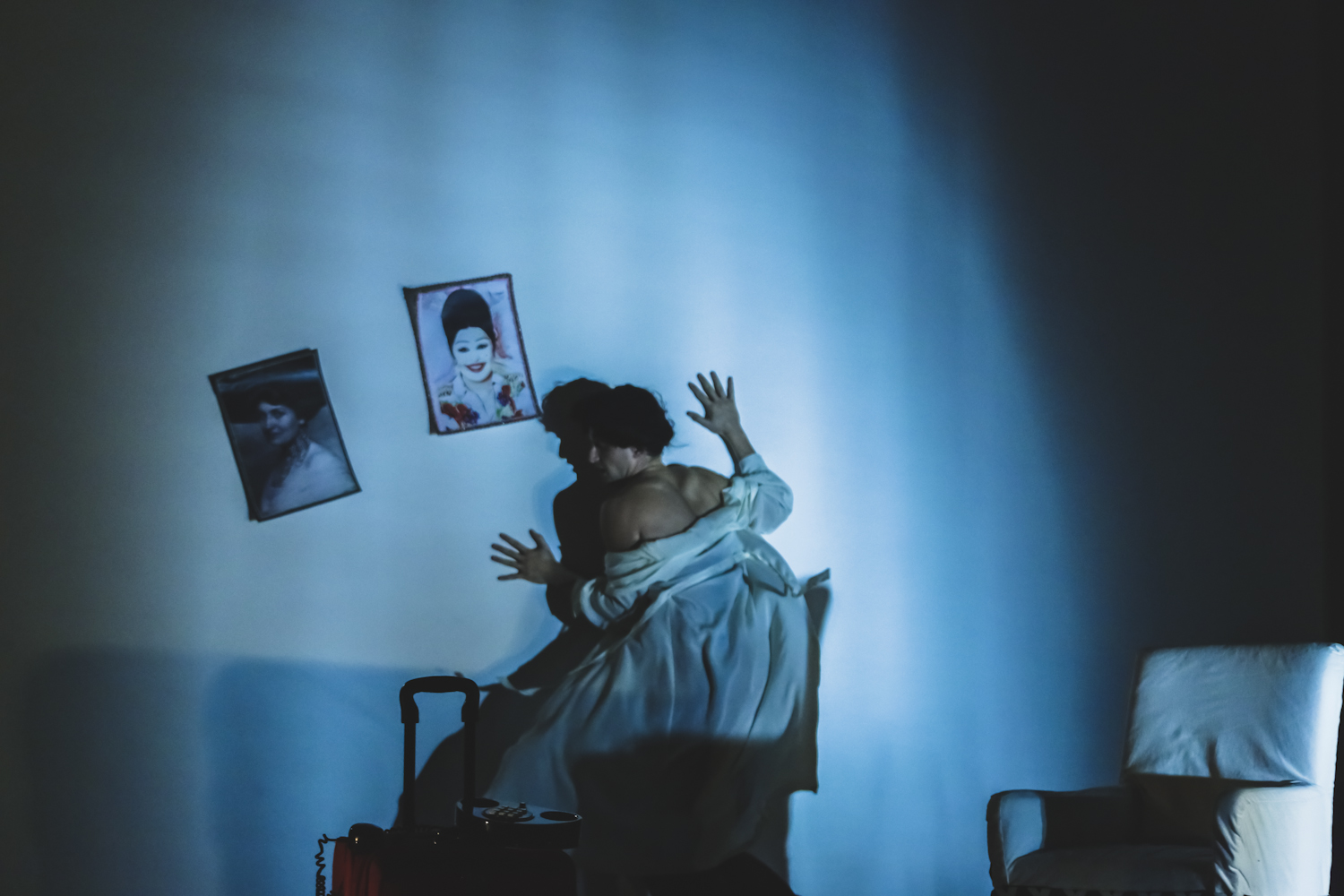Alma, A Human Voice stands on an immediately complex premise. It is a melding of two stories: one of painter Oskar Kokoscha and his lover, Alma Mahler; the other of the nameless female character from Jean Cocteau’s short play La Voix Humaine. It is a little tricky to extricate some of these details from the play itself, though whether the audience know any of this beforehand or not probably makes little difference.
Alma is a confused play that leads the audience down too many disparate and vague paths. We open with solo performer Lorenzo Piccoli arranging women’s clothes and various props carefully on the stage, as if recreating a crime scene or building a physical symbol of an empty woman. Thereafter, he speaks to the audience directly about the characters he will embody as well as speaking in their voice, usually on the retro phone. The aim of the play seems to be to explore the mental upheaval of women who are discarded by creative and powerful men. However, the dialogue becomes repetitive and obtuse at times, and although the characters speak in interesting metaphors it doesn’t lead us to understanding what is going on any better. It’s also never clear whether this is a biography piece, a drag show, a Norman Bates-esque character study, or an exercise in acting versatility. Maybe a play can be all of these things. But it’s not working here.
It does possess some commendable production value, though. Piccolo is clearly a talented performer who gives a committed performance. His lip-syncing is timed perfectly to the audio playback of phonecalls, and he deftly dresses and undresses to shift between vintage and outlandish outfits for the characters. The limited lighting is used effectively to alter the atmosphere and play with shadows interestingly. Hitchcockian 50s noir music is also added to the phone recordings to create a sense of menace.
Ultimately though, none of this is enough to raise Alma from murky confusion. Which character are we watching at what point? Why are some lines spoken live by the actor and others lip-synced? What is the plot? Is there a plot? It’s not a positive sign when we’re still asking these questions after an hour. We finish with too much uncertainty about real details from the women’s lives and why the split between two characters was even necessary.
